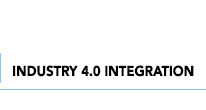Fictron Industrial Supplies Sdn Bhd
No. 7 & 7A,
Jalan Tiara, Tiara Square,
Taman Perindustrian Sime UEP,
47600 Subang Jaya,
Selangor, Malaysia.
No. 7 & 7A,
Jalan Tiara, Tiara Square,
Taman Perindustrian Sime UEP,
47600 Subang Jaya,
Selangor, Malaysia.
+603-8023 9829
+603-8023 7089
Fictron Industrial
Automation Pte Ltd
140 Paya Lebar Road, #03-01,
AZ @ Paya Lebar 409015,
Singapore.
+65 31388976
sg.sales@fictron.com
Automation Pte Ltd
140 Paya Lebar Road, #03-01,
AZ @ Paya Lebar 409015,
Singapore.
+65 31388976
sg.sales@fictron.com
Using Electric Buses in Climate Fight Faces Hurdles
16 Oct 2019


View Full Size
Electric buses could play an important role in coping with climate change, but U.S. cities testing them have met obstacles that need fixing before the technology is extensively employed to slow global warming, a report shows. Buses tested in a number of U.S. locales had trouble with battery life, inadequate range and sensitivity to extreme heat, according to the U.S.-based report.
The study was compiled by U.S. PIRG Education Fund, a public interest group, the nonprofit Environment America Research and Policy Center and Frontier Group, a clean energy organization. Battery-powered electric buses minimize diesel exhaust emissions and pollution and discharge far fewer greenhouses gasses that contribute to global warming than do diesel and natural gas-powered buses, proponents say.
Transportation is the nation's largest source of greenhouse gas emissions, accounting for just about one-third of emissions, according to the U.S. Environmental Protection Agency. But the emerging electric bus technology is not without its pitfalls, said the report which looked at six U.S. test locations. Among them, Chicago Transit Authority's two electric buses were able to deal with cold weather, and the agency plans full-fleet electrification by 2040, it said.
But buses evaluated in 2018 in Albuquerque, New Mexico had shorter-than-expected battery life, insufficient range and a sensitivity to extreme heat, it said. ''We obviously want to see more electric buses on the road, but we're not going to say places that have tested them have had 100% success rates with no challenges,'' said Matthew Casale, a transportation specialist with the U.S. PIRG Education Fund.
''Places that are thinking about making a change now can be more informed about what they are facing.''
While some U.S. communities are looking to replace diesel buses, many transit agencies are cautious out of concerns that electric vehicles have limited range and are unproven on a mass scale. A report circulated in May by the World Resources Institute, a global research organization, found cities face technological, financial and institutional barriers to electrifying bus fleets.
Cities don't know enough about the buses' limitations and maintenance, and transit agencies may be unwilling to pay for buses that are more expensive up front but cheaper to operate than conventional buses, WRI said. ''Critics out there say the buses are not ready for prime time because of technology hurdles or cost hurdles or education hurdles,'' Casale said.
''At the end of the day, electric buses really provide significant reductions in greenhouse gas emissions and exposure to harmful pollutants,'' he said. ''It's certainly something worth pursuing.''
About half of America's close to 70,000 transit buses and 95% of its school buses run on diesel, the report said. Among major cities, New York City has announced plans to convert public buses to an all-electric fleet by 2040.























